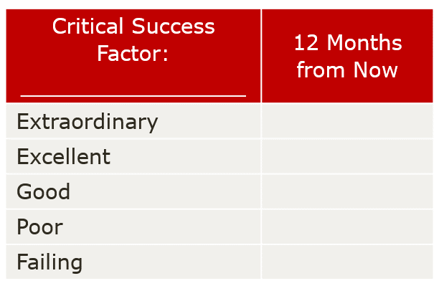This article is the 1st place winner of the 2022 Sales Pro Central MVP Awards on Sales Leadership!
In our sales management training, we have developed 10 keys and a framework of activities that provide a new or tenured sales leader with a roadmap they need to put in place to help lead their team to greater sales success.

Most companies engage in sales training, but we have found over our 30 years of business that few invest in sales management training. In part, due to the theory that a successful salesperson can transition to teaching and coaching others to do the same. This theory is flawed because there are very different skills required of sales managers than salespeople- the most important being the driving desire to develop and achieve success through others. Both roles do include a focus on relationship selling and the ability to quickly and effectively find and develop a bond with others. However, the core skills of a sales manager involve understanding how to transition from actively doing to teaching and coaching. In our sales management training, we have developed a framework of activities that provide a new or tenured sales leader with specific activities they need to put in place to help lead their team to greater success.
Here are 10 keys to success for leading a sales team:
- Guiding the team to set extraordinary goals
- Managing excuse-making
- Understanding the Will to Sell and Sales DNA factors beneath sales behavior
- Following a coaching process
- Coaching the deal and coaching for skill development
- Establishing personal and business goal setting
- Leading consistent sales huddles
- Creating a hiring profile and having a candidate pipeline
- Coaching a stage-based sales process
- The shadow of the leader
Guiding the team to set extraordinary goals: One of the biggest complaints of most salespeople is that their goals are set by the company and are not realistic. What is interesting about that is if a sales leader effectively takes their salespeople through a process of establishing their own goals, salespeople will typically set them higher than the company might. In our sales management training, we help managers with a specific approach of establishing Extraordinary Goals. Utilizing a matrix like the one below, a sales manager begins by asking the salesperson what a good goal for their year is, then discusses poor and failing levels. Once those are established they have a conversation about what an Excellent year would look like and then what an Extraordinary year would be. Numbers are essential, along with a discussion of what would be needed to achieve these levels. Once all those numbers are established the sales leader asks the salespeople to which level they want to be managed and coached. Most high-performing salespeople will choose the top level. The key, however, is the sales leader must ask the salesperson if they will allow them to be coached to that level, and gains the understanding that it will be hard and challenging. Utilizing this process, the salesperson has established their own goal and will be more committed to doing what it takes to achieve it.
 Managing excuse-making: We all make excuses, but one of the skills of top-performing salespeople is their ability to own their outcomes and results. In our sales management training, we help sales leaders understand the commitment levels of their salespeople and then how to coach to those various levels. We can all recognize some salespeople will do Whatever It Takes, which we call WIT. These salespeople rarely, if ever, blame the market, the company, or anything other than their actions for lack of success. So here is the strategy. When asked, "Why do you think you did not reach your annual goal, Joe?” Joe says, “Look how many accounts I am managing! How can I do this client servicing work and still bring in new business?” The sales manager replies, “If I did not let you use that excuse, what would you have done differently?” This approach reaps great success because it puts the ball squarely back in the salesperson's court, and they must think about how they could have adjusted their activities to achieve a different result. They must own it.
Managing excuse-making: We all make excuses, but one of the skills of top-performing salespeople is their ability to own their outcomes and results. In our sales management training, we help sales leaders understand the commitment levels of their salespeople and then how to coach to those various levels. We can all recognize some salespeople will do Whatever It Takes, which we call WIT. These salespeople rarely, if ever, blame the market, the company, or anything other than their actions for lack of success. So here is the strategy. When asked, "Why do you think you did not reach your annual goal, Joe?” Joe says, “Look how many accounts I am managing! How can I do this client servicing work and still bring in new business?” The sales manager replies, “If I did not let you use that excuse, what would you have done differently?” This approach reaps great success because it puts the ball squarely back in the salesperson's court, and they must think about how they could have adjusted their activities to achieve a different result. They must own it.
Understanding the Will to Sell and Sales DNA factors beneath sales behavior: When a salesperson does not prospect enough, avoids asking about the budget in the sales process, or does not ask enough strong qualifying questions, it is often the result of their underlying Will to Sell and Sales DNA. It is impossible to coach these behaviors without understanding what lies beneath the salesperson's actions. Relationship selling is a complex skill, and a sales coach will want to understand these underlying factors about their salespeople to effectively coach them to higher levels of performance. For example, if a salesperson does not believe that they have the right to ask budget questions or is uncomfortable doing so (uncomfortable discussing money), they won't ask. It is easy to teach a technique and help them with questions they can be comfortable with once they understand what is getting in their way.

Following a Coaching Process: Much like mastering a sport like golf and tennis, there are different styles and approaches, but there are technical factors involved in becoming adept at these sports. Similarly, in our sales management training, we help sales leaders with the technical side of coaching with a 5-step coaching process. Yes, they must be adept at each of these steps below, but if they commit to coaching their salespeople in this manner, they will see a lift.
- Gain insight: find out what is happening or not happening through huddle data or observational coaching, schedule a coaching session
- Provide feedback: have quality conversations that are timely and specific, asking questions of their salespeople to help them self-discover, and gain agreement on the real problems
- Demonstrate and instruct: Identify skill gaps, demonstrate mastery of the skill, and instruction on critical steps to improve
- Roleplay: Complete a pre-call for an upcoming call, RM roleplays, complete a post-call debrief together, coach gaps
- Develop an action plan: determine action steps, observe, inspect and coach again, celebrate results, and address failure
Coaching the deal and coaching for skill development: Many sales coaches are great at coaching the deal, helping a salesperson understand if the prospect fits their target, researching the industry and issues, the complexities of the structure of the deal, etc. However, at a separate time, sales managers must focus on sales behaviors to help a salesperson make improvements in their strategies, skills, and approach. We recommend establishing coaching hours on the calendar. This is when a salesperson commits to a meeting with their manager, reviews a prospect pre or post-call and reviews the questions they will ask/asked, and completes a qualifying scorecard on the prospect. This is time to sharpen their sword. One of the most important jobs of the sales manager is to practice with their salespeople, take time to help them with a new approach, ask questions differently, and help them get comfortable with closing questions. This time is set aside not to focus on a deal but to improve skills and affect behavior change. Remember, change takes repetition and practice!
Tune in to our blog next week for the Sales Leader's final 5 keys to leading their team to success!










